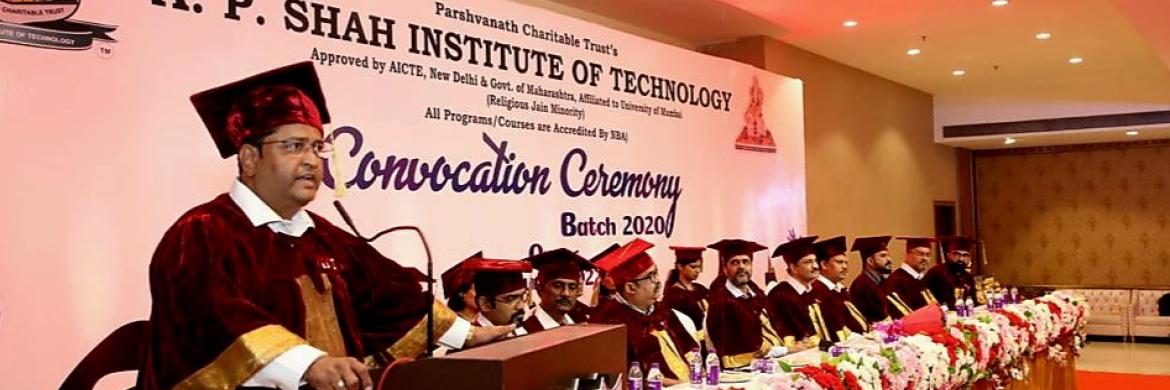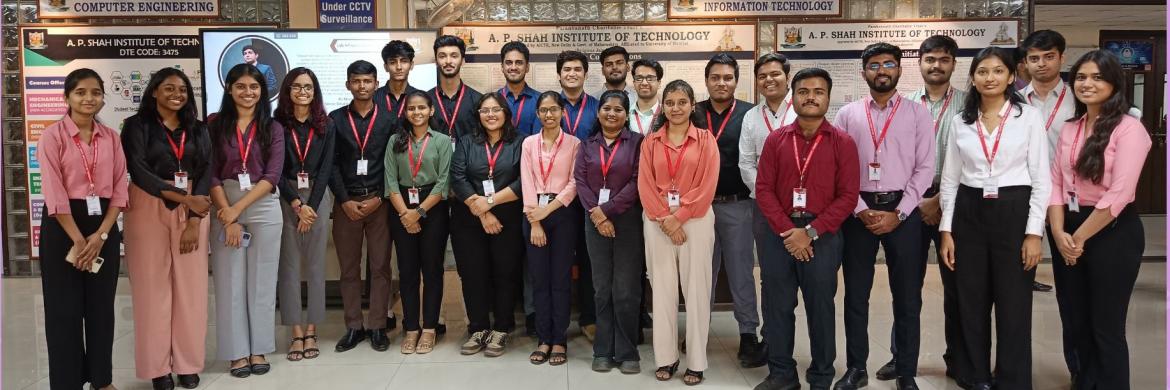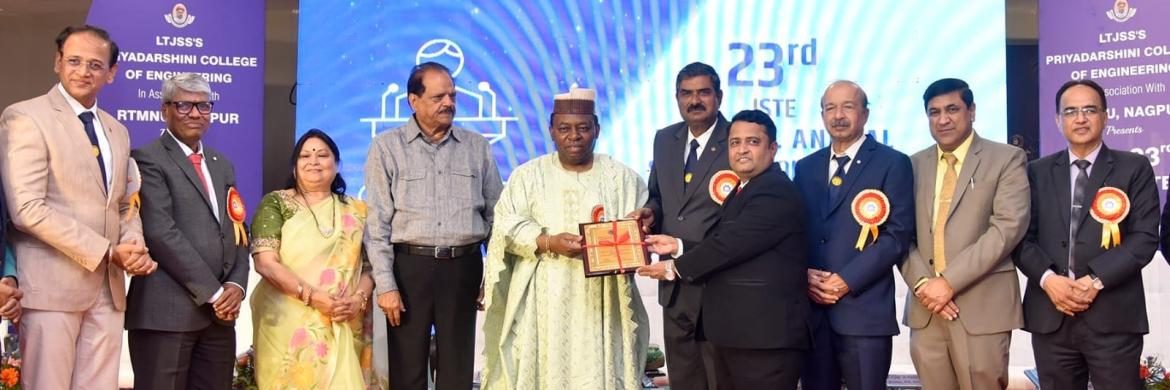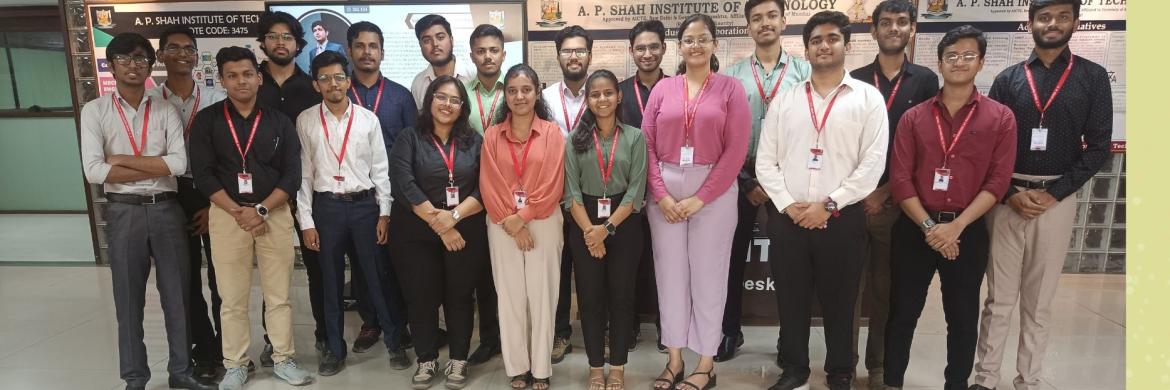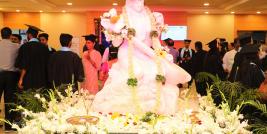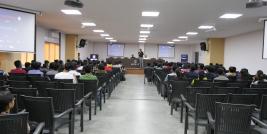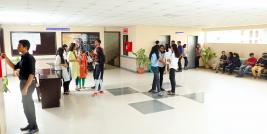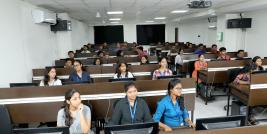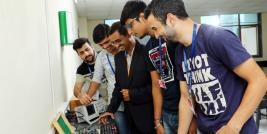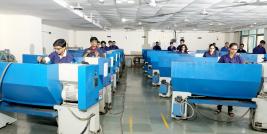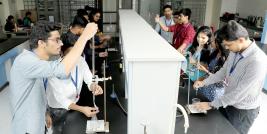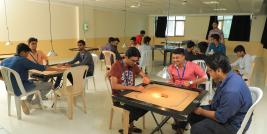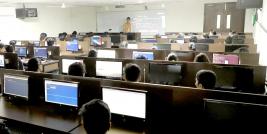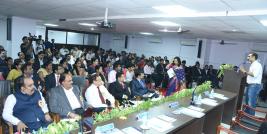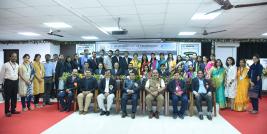Department of Computer Engineering:
Program Educational Objectives (PEO)
- PEO 1 PREPARATION: Graduate shall be competent to gain employment in global industry or pursue higher studies in premier universities..
- PEO 2 CORE COMPETENCE: Graduate shall apply core competence in problem solving, analysis, Synthesis, Innovation to solve engineering problems in the global environment.
- PEO 3 BREADTH: Graduate shall demonstrate knowledge and skills learned in database management, data structures, Analysis of algorithms, Programming, Machine learning and allied technologies in the successful development of products, projects and processes.
- PEO 4 PROFESSIONALISM: Graduate shall demonstrate leadership skills, professional ethics, Communication skills, interpersonal skills to work as effective team member in the professional practice.
- PEO 5 LIFE LONG LEARNING: Graduate shall apply life skills and lifelong learning to lead a successful individual life and a responsible citizen to contribute towards development of society and country.
Program Specific Outcome (PSO)
- Professional Skills: The graduate must be able to understand, analyze and develop computer programs, applications in the areas of Computer science and engineering.
- Problem-Solving Skills: The graduate must be able to apply standard practices and strategies in software project development to deliver quality products for industry, organization & society.
- Successful Career and Entrepreneurship: The graduate must be able to employ modern technologies in creating innovative career paths in an entrepreneurship, higher studies and jobs in industry.
Program Outcome (PO)
- Engineering Knowledge: Apply the knowledge of mathematics, science, engineering fundamentals, and an engineering specialisation for the solution of complex engineering problems.
- Problem Analysis: Identify, formulate, research literature, and analyse complex engineering problems reaching substantiated conclusions using first principles of mathematics, natural sciences, and engineering sciences.
- Design/development of solutions: Design solutions for complex engineering problems and design system components or processes that meet t h e specified needs with appropriate consideration for public health and safety, and cultural, societal, and environmental considerations.
- Conduct investigations of complex Problems: Use research-based knowledge and research methods including design of experiments, analysis and interpretation of data, and synthesis of the information to provide valid conclusions.
- Modern tool usage: Create, select, and apply appropriate techniques, resources, and modern engineering and IT tools, including prediction and modelling to complex engineering activities, with an understanding of the limitations.
- The engineer and society: Apply reasoning informed by the contextual knowledge to assess societal, health, safety, legal, and cultural issues and the consequent responsibilities relevant to the professional engineering practice.
- Environment and sustainability: Understand the impact of the professional engineering solutions in societal and environmental contexts, and demonstrate the knowledge of, and need for sustainable development.
- Ethics: Apply ethical principles and commit to professional ethics and responsibilities and norms of the engineering practice.
- Individual and team work: Function effectively as an individual, and as a member or leader in diverse teams, and in multidisciplinary settings.
- Communication: Communicate effectively on complex engineering activities with the engineering community and with t h e society at large, such as, being able to comprehend and write effective reports and design documentation, make effective presentations, and give and receive clear instructions.
- Project management and finance: Demonstrate knowledge and understanding of t h e engineering and management principles and apply these to one’s own work, as a member and leader in a team, to manage projects and in multidisciplinary environments.
- Life-long learning: Recognise the need for, and have the preparation and ability to engage in independent and life-long learning in the broadest context of technological change.
